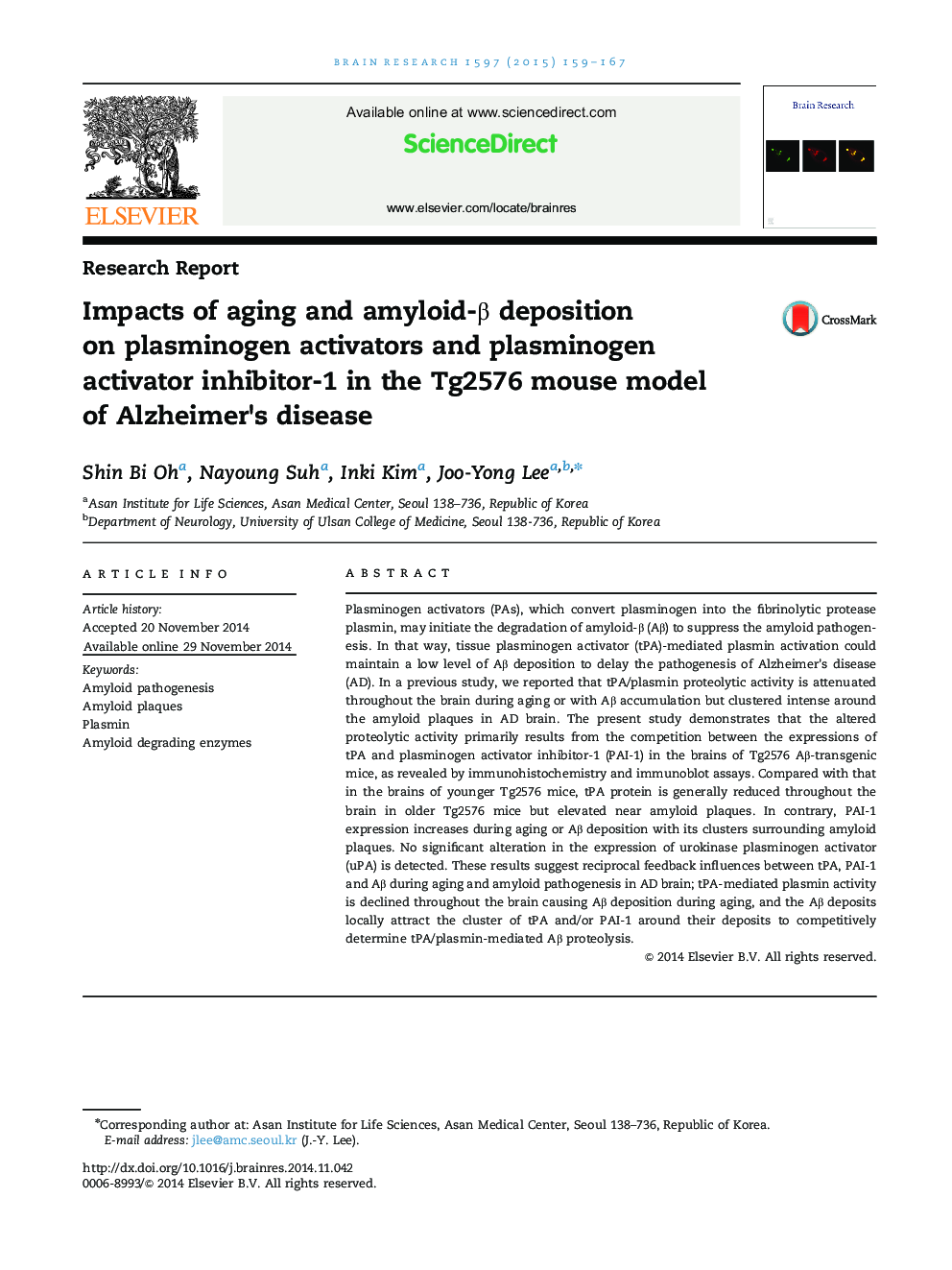| کد مقاله | کد نشریه | سال انتشار | مقاله انگلیسی | نسخه تمام متن |
|---|---|---|---|---|
| 6263170 | 1613842 | 2015 | 9 صفحه PDF | دانلود رایگان |

- tPA expression is lost in the brain during aging and Aβ deposition.
- PAI-1 is induced in the brain during aging and Aβ deposition.
- Both tPA and PAI-1 clusters surround compact amyloid plaques.
- Competition between tPA/PAI-1 determines the Aβ-targeting plasmin proteolysis.
- Modified tPA/PAI-1 expression during aging makes an impact on amyloid pathogenesis.
Plasminogen activators (PAs), which convert plasminogen into the fibrinolytic protease plasmin, may initiate the degradation of amyloid-β (Aβ) to suppress the amyloid pathogenesis. In that way, tissue plasminogen activator (tPA)-mediated plasmin activation could maintain a low level of Aβ deposition to delay the pathogenesis of Alzheimer׳s disease (AD). In a previous study, we reported that tPA/plasmin proteolytic activity is attenuated throughout the brain during aging or with Aβ accumulation but clustered intense around the amyloid plaques in AD brain. The present study demonstrates that the altered proteolytic activity primarily results from the competition between the expressions of tPA and plasminogen activator inhibitor-1 (PAI-1) in the brains of Tg2576 Aβ-transgenic mice, as revealed by immunohistochemistry and immunoblot assays. Compared with that in the brains of younger Tg2576 mice, tPA protein is generally reduced throughout the brain in older Tg2576 mice but elevated near amyloid plaques. In contrary, PAI-1 expression increases during aging or Aβ deposition with its clusters surrounding amyloid plaques. No significant alteration in the expression of urokinase plasminogen activator (uPA) is detected. These results suggest reciprocal feedback influences between tPA, PAI-1 and Aβ during aging and amyloid pathogenesis in AD brain; tPA-mediated plasmin activity is declined throughout the brain causing Aβ deposition during aging, and the Aβ deposits locally attract the cluster of tPA and/or PAI-1 around their deposits to competitively determine tPA/plasmin-mediated Aβ proteolysis.
Journal: Brain Research - Volume 1597, 9 February 2015, Pages 159-167